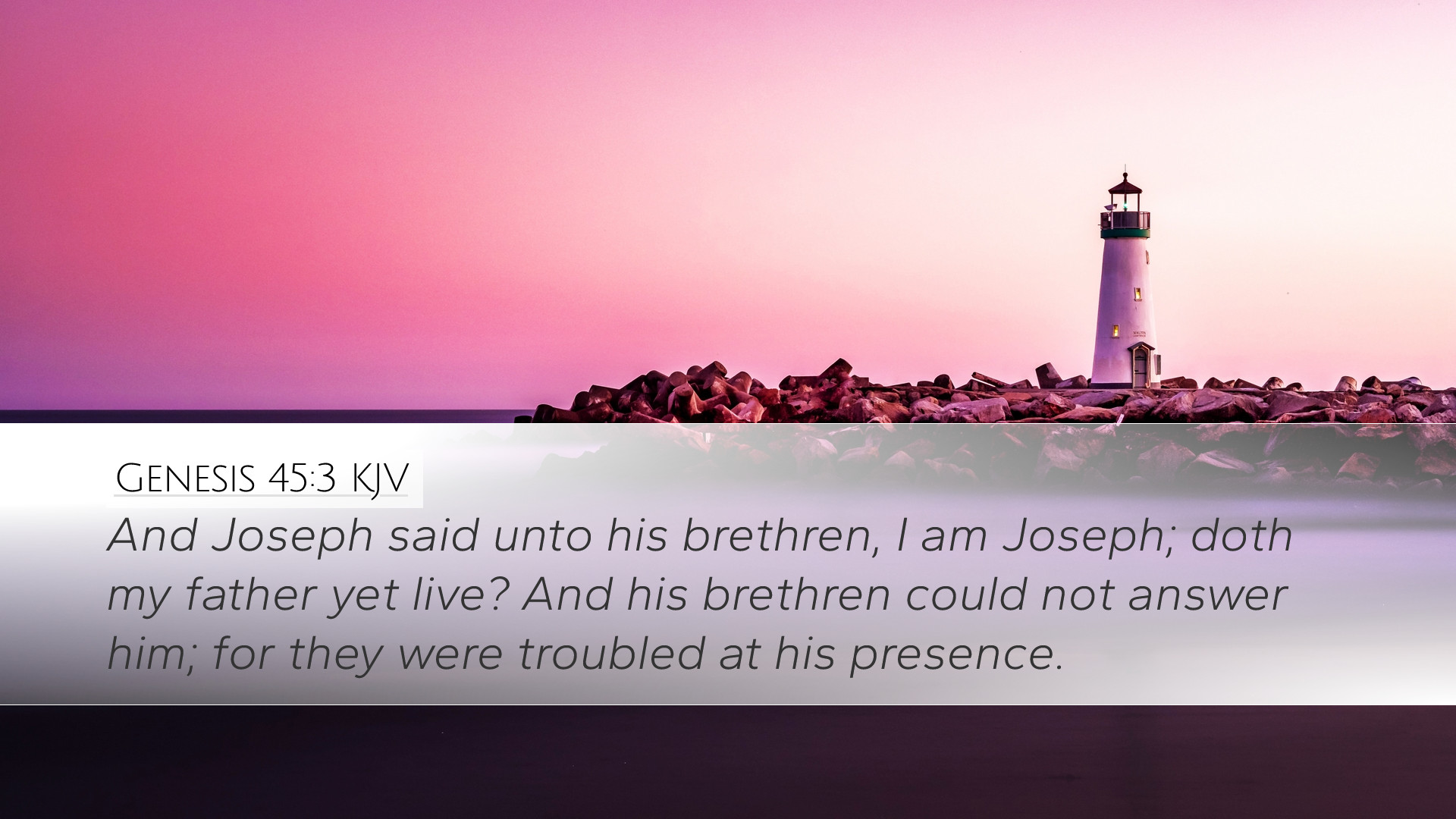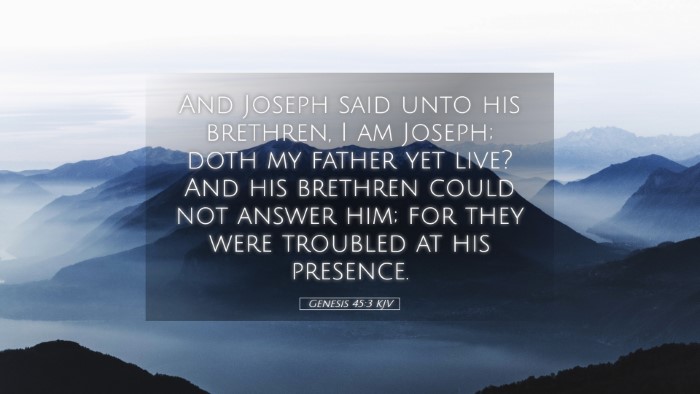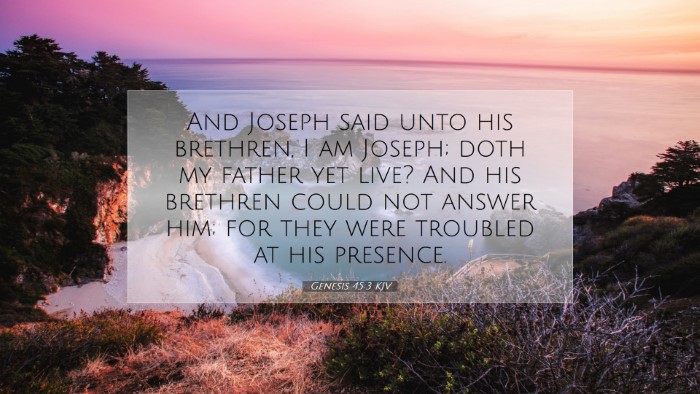Commentary on Genesis 45:3
Verse: "And Joseph said unto his brethren, I am Joseph; doth my father yet live? And his brethren could not answer him; for they were troubled at his presence."
Introduction
This powerful moment in the Book of Genesis highlights an emotional revelation and reconciliation. The implications of Joseph's identity and the brothers' reactions encapsulate profound themes of forgiveness, providence, and familial relationships. The insights from various public domain commentaries illuminate these vital themes, offering a richer understanding valuable to scholars, pastors, and students of Scripture.
Contextual Background
The events leading to this moment are rooted in Joseph's earlier life, marked by betrayal and suffering. Sold into slavery by his brothers, Joseph's subsequent rise to power in Egypt is a narrative of divine providence. As the famine strikes the land, his brothers arrive in Egypt seeking sustenance, unaware of their brother's high status.
Matthew Henry's Commentary
Matthew Henry, in his exposition, emphasizes the emotional gravity of this revelation. He notes that when Joseph reveals himself, it initiates a cascade of emotions: shock, guilt, and regret among the brothers. They are paralyzed by fear, realizing the gravity of their past actions. Henry points out:
- “They could not answer him; for they were troubled at his presence.” This illustrates not only their immediate fear but also a deeper moral reckoning.
Henry also underscores Joseph's pastoral care, as he quickly reassures his brothers, signifying forgiveness and the importance of reconciliation. This act reflects the broader theme of God's redemptive work in human relationships.
Albert Barnes' Commentary
Albert Barnes provides further insights into the significance of Joseph's inquiry about his father. He interprets this question as an indication of Joseph’s unwavering love and concern for his family despite their betrayal. Barnes states:
- “The acknowledgment of his identity ... was not just for revelation but also a means to express his care for his family.” Joseph’s immediate concern for Jacob reflects the theme of familial loyalty that permeates the narrative.
Barnes elaborates on the psychological dimensions at play, noting that the brothers’ immediate reaction—being "troubled"—speaks to the depth of their guilt and the tumult of emotions that accompanies such a revelation.
Adam Clarke's Commentary
Adam Clarke delves into the theological implications of this passage. He interprets Joseph's declaration as a dramatic turning point not only for Joseph but also for the entire family. Clarke highlights the transformative nature of this moment:
- “This was an act of love and mercy; it showed how far he had moved from bitterness to reconciliation.” This emphasizes the theme of forgiveness in human relationships.
Clarke also notes the profound irony: the very brothers who sought to harm Joseph now stand before him in need. This reversal of fortunes is central to understanding God’s providential hand at work. Clarke urges readers to reflect on the sovereignty of God weaving a narrative of grace amidst human failure.
Theological Reflections
The emotional intensity of Genesis 45:3 serves multiple layers of theological meaning, applicable to contemporary life and ministry:
- The Nature of Forgiveness: The passage exemplifies how true forgiveness can lead to healing. Joseph’s willingness to reveal himself is a pivotal moment that invites his brothers back into relationship, despite past sins.
- Providence and Purpose: Joseph's journey demonstrates that God can use even our darkest moments for a greater good. Joseph himself acknowledges later that God meant it for good, illustrating trust in divine providence.
- Family Dynamics: This passage speaks to the complexities of familial relationships (betrayal, regret, and restoration). The narrative offers hope for reconciliation within families, emphasizing the need for open communication and forgiveness.
- Identity and Transformation: The revelation of identity positions Joseph in a role that reconciles not just himself but also restores his family unit. This aspect deepens the understanding of personal transformation through divine intervention.
Conclusion
Genesis 45:3 serves as a crucial moment within the broader spiritual narrative, inviting readers to contemplate forgiveness, providence, and interpersonal relationships. The insights from public domain commentaries provide a multi-faceted view of this text, enriching our understanding as we engage with the complexities of faith and human experience. As pastors, students, and theologians study this passage, they are reminded of the power of reconciliation and the lasting impact of choosing forgiveness amidst pain and betrayal.


